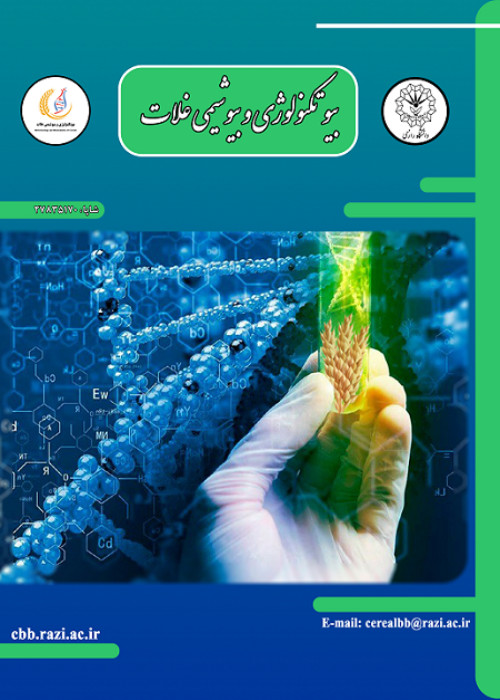Evaluation of corn lines and hybrids resulting from their crossing based on biochemical and physiological traits in conditions of limited irrigation stress
Water deficit stress is one of the most common environmental stresses which has limited agricultural production. So, research on the water deficit tolerance in crops is very important.
In this study, 15 corn genotypes (five parents and 10 hybrids resulting from their crossing) were evaluated in two separate experiments including normal conditions (irrigation cycle of 5 days) and water deficit (irrigation cycle of 8 days) based on randomized complete blocks design with two replications in the Research Farm of Graduate University of Advanced Technology, Kerman, Iran during 2017. The chlorophylls a and b, proline, protein, and reducing sugars traits were estimated in normal and water deficit conditions.
The results of combined variance analysis showed a significant difference at the probability level of 1% for all the studied traits between genotypes (parents and hybrids) and also between two stress conditions. The interaction effect of genotype×stress was significant for all traits, which means that genotypes have shown different reactions under water deficit stress. The water deficit stress caused a significant decrease in chlorophylls a and b, carotenoids, reducing sugars and protein, and an increase in the amount of proline. The highest amount of carotenoids was related to genotype 8 (1.80 mg/gfw) under normal conditions, and the highest amount of carotenoids was related to genotype 3 (2.96 mg/gfw) under water deficit conditions. The mean comparison results showed that the amount of protein was affected by water deficit stress, that the highest amount of protein in normal conditions was related to Genotype 5 (0.00668 mg/gfw) and the water deficit conditions, the same genotype (Genotype 5) also had the highest value (0.0070 mg/gfw). The grouping of genotypes under water deficit conditions was performed by Ward's method, and the cophenetic coefficient of this method was equal to 0.77 and categorized the genotypes into three groups. Also, based on the average traits, the grouping of corn genotypes by the UPGMA method and Cophentic coefficient equal to 0.72 was able to place the genotypes in two groups.
The intolerance of corn genotypes to water deficit stress can be due to the destruction of chlorophyll, the reduction of reducing sugars and protein, as well as the insufficient increase of proline, and these biochemical changes have caused the sensitivity of corn genotypes to water deficit. Also, genotypes 4, 5, 9, and 11 could be investigated in future breeding programs due to their greater water deficit tolerance.
- حق عضویت دریافتی صرف حمایت از نشریات عضو و نگهداری، تکمیل و توسعه مگیران میشود.
- پرداخت حق اشتراک و دانلود مقالات اجازه بازنشر آن در سایر رسانههای چاپی و دیجیتال را به کاربر نمیدهد.


